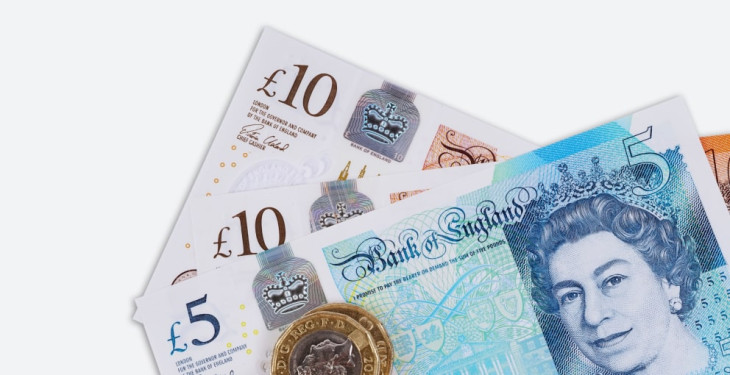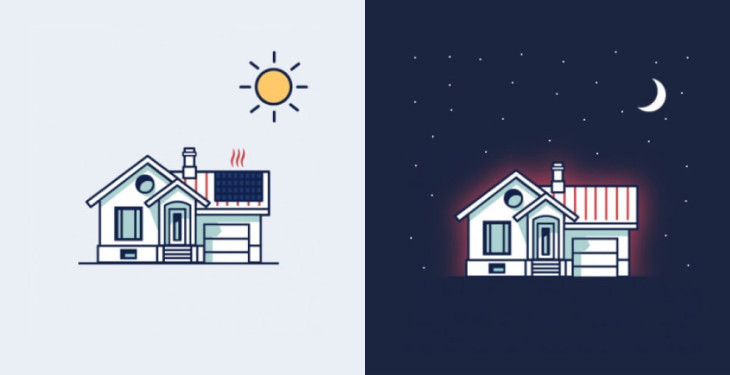

Written by Stephen Day
Gas Safe Engineer
Updated: 4th February, 2026
As the world continues to grapple with environmental challenges, the adoption of renewable energy sources has gained significant traction.
Get a new boiler quote, save up to £550 per year (0% APR available).
As the world continues to grapple with environmental challenges, the adoption of renewable energy sources has gained significant traction.
Among the various alternatives, solar power has emerged as a promising solution, offering a clean and sustainable energy option for both residential and commercial applications.
In this blog post, we will explore the costs associated with solar panels from the perspective of iHeat, an online boiler installation company.
Furthermore, we will highlight the benefits of modern boilers and their correlation with solar energy, showcasing a pathway to an eco-friendly and cost-effective heating solution.
Solar panel costs have experienced a substantial decline in recent years, making them a more viable option for homeowners and businesses alike.
Factors such as technological advancements, increased production, and government incentives have contributed to this downward trend.
While the overall cost of solar panel installations can vary depending on factors like system size, location, and equipment quality, the long-term benefits outweigh the initial investment.
When it comes to estimating the cost of a solar panel system, several components must be considered:
Solar panels, inverters, mounting systems, wiring, and other hardware required for installation contribute to the upfront costs. The quality and efficiency of the components can impact both the installation cost and the long-term performance of the system.
Labour costs associated with the installation process, including permits, electrical work, and panel mounting, need to be factored in. It's crucial to engage professional installers to ensure a safe and efficient setup.
Solar panels generally require minimal maintenance, but occasional cleaning and inspection are recommended. Maintenance costs over the system's lifespan should be considered in the overall cost estimation.
Several financing options, such as solar leases, power purchase agreements (PPAs), and loans, are available to make solar installations more accessible. These options can help mitigate the upfront cost burden and provide attractive repayment terms.
As an online boiler installation company, iHeat recognizes the importance of providing efficient heating solutions that align with sustainable practices. Modern boilers offer several advantages over traditional heating systems, and when combined with solar energy, they form a powerful duo for energy-conscious homeowners:
Modern boilers are designed to maximise energy efficiency, reducing both fuel consumption and carbon emissions. High-efficiency condensing boilers can achieve energy savings of up to 30% compared to older models.
By adopting a modern boiler, homeowners can enjoy significant cost savings on their energy bills. Improved efficiency translates into lower fuel consumption, resulting in reduced heating expenses over time.

Modern boilers emit fewer greenhouse gases, contributing to a cleaner and healthier environment. By combining solar power with a modern boiler, homeowners can further minimise their carbon footprint and dependence on fossil fuels.
Modern boilers offer advanced features such as programmable thermostats and zoning capabilities, allowing homeowners to tailor their heating needs and optimise comfort in different areas of the house.
When solar panels and modern boilers are integrated, homeowners can experience the full benefits of sustainable heating. By utilising solar energy to power the boiler, homeowners can significantly reduce their reliance on conventional energy sources.
Excess energy generated by solar panels during the day can be stored in batteries or fed back into the grid, further enhancing the system's efficiency.
Moreover, solar-powered boilers can operate during periods of grid outages, ensuring a continuous supply of hot water and heating, especially in areas prone to power disruptions. This reliability can be particularly valuable during colder months when heating demands are at their peak.

Is your home in a sunny location that would allow it to benefit from solar panels? You need roughly 5 square metres of roof space faxing East to West through South collecting sunlight in order for it to work effectively.
Do you have the space for an additional hot water cylinder? If you own a combi boiler, you’ll know that they’re compact and require very little space, however, in order to store hot water with solar panels, you’ll need extra room for the hot water cylinder.
Is your current boiler compatible with solar water heating? There’s no point investing all that money into solar panels, only to realise they don’t actually work alongside your boiler so make sure to do some research first.
Boilers can be a daunting purchase for many people as they’re an appliance with a lot of responsibility, providing heat for you and your family is something you want to get right. Boilers aren’t exactly a quickly disposable item either, potentially lasting you a decade.
Boiler costs can be split into two segments: the first is the actual boiler itself (unit price), and the second is the cost of the boiler being installed (set up) in your property by an expert engineer.
Here at iHeat, we want to remove all of this undue stress and make the decision making process of upgrading to a new central heating system, as easy as possible
Installation Type | Price (inc VAT) | |
Combi to combi swap | £1,845 | |
System to combi conversion | £2,499 | |
New boiler install | £2,899 | |
Back boiler to a combi | £3,299 | |
System to system | £1,945 |
You will be given a specific quote from the boiler installation company based on:
The type of home you have (i.e. terraced, semi-detached, etc.)
How many bedrooms you have
How many bathrooms you have
Your postcode and specific location
Here at iHeat we offer free, fixed price quotes in less than 60 seconds!
Now might be the perfect time to upgrade your central heating system to lower your heating bills.
Last updated: 4th February, 2026

Written by Stephen Day
Gas Safe Engineer at iHeat
Stephen Day is a Gas Safe registered and FGAS certified engineer with over 20 years of hands-on experience in the heating, cooling, and renewable energy industry, specialising in boiler installations, air conditioning, and heat pump systems.
LinkedInArticles by Stephen Day are reviewed by iHeat’s technical team to ensure accuracy and reliability.

19th February, 2026
Selecting the appropriate boiler for your London home involves understanding the different...
 Read Article
Read Article

19th February, 2026
A typical Annual Boiler Service includes a visual inspection to identify any obvious fault...
 Read Article
Read Article

19th February, 2026
Boiler servicing comprises a set of inspections and tests conducted by a qualified enginee...
 Read Article
Read Article
No obligation. Takes less than 60 seconds.